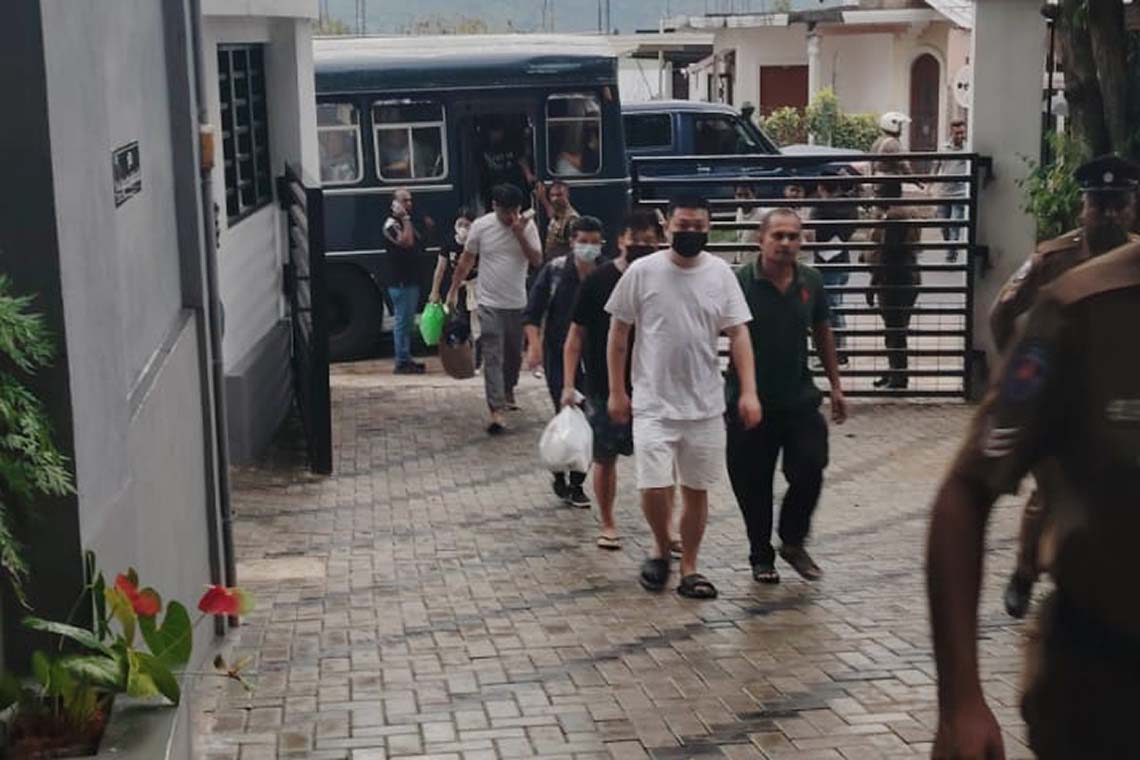
Sri Lanka is increasingly becoming a base for international cybercrime, with authorities arresting nearly 200 foreign nationals in a series of raids targeting online scam operations this month.
The suspects, mostly Chinese, were apprehended across multiple locations, including Colombo, Kandy, and Panadura, after police uncovered sophisticated networks involved in financial scams. The arrested individuals are believed to have entered Sri Lanka as tourists, overstaying their visas to run large-scale online fraud targeting victims both locally and abroad. Police seized hundreds of mobile phones, computers, and other electronic devices used in the scams.
The rise in cybercrime operations has raised alarms, with officials warning that these scams could damage Sri Lanka’s financial system.
In one raid alone, 129 Chinese nationals were arrested, with other operations netting additional Chinese, Indian, and Thai nationals involved in these scams.
The Chinese Embassy in Sri Lanka acknowledged the growing problem of cybercrime, describing online fraud as a threat to both countries and their citizens. “These crimes not only endanger the property of our two peoples but also damage China’s international image and affect the traditional friendship between our countries,” the embassy said in a statement. “We stand ready to strengthen our cooperation in law enforcement to tackle this issue jointly.”
“The Chinese Government, recognising this trend, dispatched a special working group in September to work alongside Sri Lanka Police in a joint operation. As a result, a significant number of suspects were apprehended, with efforts now underway to ensure their repatriation and prosecution," it noted.
Earlier in August, Sri Lankan authorities arrested 84 foreigners who were allegedly operating online scamming compounds in the south of the island – including in hotels along the tourist-filled coasts. The first arrests came in June this year when Sri Lanka’s Criminal Investigations Department (CID) unearthed a large-scale online financial fraud network operating from Negombo, targeting multiple foreign countries and residents through online scams.
Sri Lanka’s economy remains on shaky grounds, with the island still reeling from a 2022 financial crisis and the government reliant on an International Monetary Fund (IMF) bailout loan.

